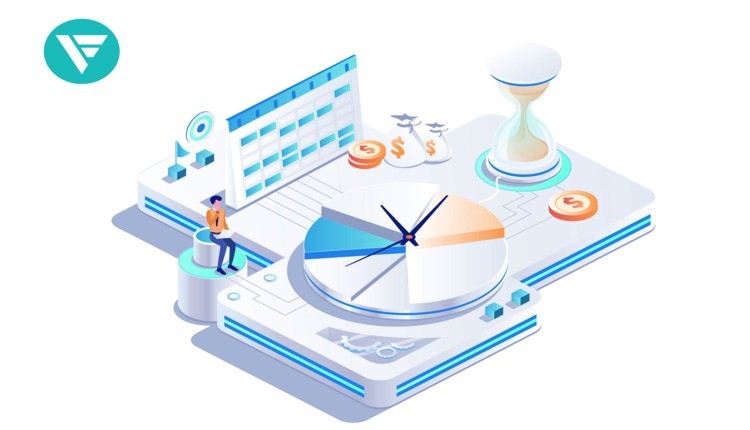3 Critical Tips to Maximize Your Potential As an Academic Researcher

This guest post is drafted by an expert team from Flowcite, an integrated academic management platform that aims to simplify the research workflow for academic authors by bringing together the most innovative solutions for collaborative research, writing, and publishing under one intuitive interface.
A career in academic research is highly rewarding, but also immensely stressful. Unlike most jobs with a secure salary, academic researchers are given a lot of autonomy in regards to the hours they put in, the opportunities they decide to pursue, and the research propositions they engage in. Autonomy, however, is both a gift and a burden. While it gives you plenty of freedom, it also means time management is entirely the responsibility of the individual.
Furthermore, for academic researchers, work constitutes a great number of tasks, making time management more complex. Budgeting time for meetings, administrative tasks, teaching, or submitting proposals is fairly straightforward. Research, however, is a different matter. There’s no end point to research. Researchers are expected to be consuming new information, journals, articles, and attending lectures on a near constant basis in order to stay up-to-date with new developments. As a result, it becomes tricky to know when to stop and where to draw the line in order to preserve a healthy work-life balance. This is especially true in the weeks leading up to submitting a piece of academic research.
Tips for Academic Researchers
Alleviating Pressure in Academic Researchers
When faced with immense time pressure or seemingly infinite tasks to achieve, it’s important to ask yourself a few questions like – are you engaging with personal priorities? This means examining, not what opportunities other people are engaging you in, but what your personal goals are, and what’s important to you. While this may seem obvious, it’s very common for individuals to get weighed down by chasing opportunities or committing themselves to engagements which don’t contribute to their own ambitions. Academic researchers are often flooded with “opportunities” – invitations to conferences and seminars, requests to contribute to publications or invitations to be part of a new project – to name a few. Before accepting these offers, it’s important to examine whether they will add value to your trajectory.
Prioritizing quality over quantity is key when discussing time management. Engaging with dozens of opportunities may mean you fail to consciously engage in a meaningful manner with any one of them. In a world full of information, quality is of much greater value and importance than quantity.
Once you’ve gained greater clarity around what your priorities are and the goals you want to move towards, it’s key to examine what you can outsource, to lighten your load. Indeed an outdated stereotype exists of an academic researcher, working away for hours by themselves and taking ownership over every part of the process. However, this is entirely unnecessary. Understanding where you can ask for help and what tasks can be off-loaded means you can dedicate your precious time to areas where it truly adds value.
You may, for example, seek the services of a proofreader, during or at the end of your writing process. Proofreading services can include everything from reviewing documents for grammar and punctuation issues, to offering help with structure or citations. Having the benefit of someone else giving feedback on your project, enables you to see your work in new ways. It may also help you rectify issues or develop weak areas. Alternatively, it may just put your mind at ease to know that no simple mistakes have been accidentally missed before you submit it.
Using Outsourcing Services Effectively
While asking a peer or colleague to review your paper may seem like the simplest option, it’s not always the most effective. Academic writing requires adherence to specific stylistic guidelines that only seasoned writers would typically be aware of.[1] Subject matter experts can offer in-depth reviews on the strength of your arguments, while experts experienced in the publishing process can offer invaluable insights too. This will no doubt save you time and stress down the line.
Enago offers expert proofreading services that can benefit any researcher, no matter where they are within their career. Whether you’re a student preparing to submit your thesis, or a professional researcher preparing your project for publication, expert proofreading should be a crucial step in your writing process. Enago’s editing services include: Language & Grammar-Check, Style and consistency checks, technical accuracy, logical flow, presentation and formatting. Enago also provides post-submission support to improve the accessibility of your paper.
Online services provide intuitive platforms where papers can be edited quickly and accurately. These proofreading services are just one of the many online tools that can streamline your workflow and bring your writing to the next level.
Smart Working with Integrated Platforms
As mentioned earlier, sifting through the “noise” is critical to maximizing your potential and increasing your productivity. While exciting and innovative digital tools can transform your workflow, it’s important not to get overwhelmed by the abundance of tools that different platforms are offering. Indeed having programs spread across different accounts can create discord and confusion.
Flowcite, is an example of an integrated academic management platform that helps you streamline your writing and publishing process. By integrating a variety of academic research tools onto one cloud, you can be saved from the time and stress of handling several different sites for a single project. Through developing the most innovative software for collaborative research, writing, and publishing into one intuitive interface, Flowcite has the capacity to save up to 80% of researchers’ time, normally spent on administrative or formatting tasks, letting them now focus on research and writing instead. From reference management and collaborative editing, to journal summarizers and personalized reference databases, Flowcite is revolutionizing academic research.
Preserving personal goals, maintaining a healthy work-life balance, and knowing when to ask for help to maximize efficiency, are just a few tips that will help researchers develop the highest value and highest quality work. Through choosing tools that work in a bespoke manner to each individual, researchers can harness the power of smart tech to survive and thrive in whatever discipline they specialize in.
References
[1] Hyatt, J. P. K., Bienenstock, E. J., & Tilan, J. U. (2017). A student guide to proofreading and writing in science. Advances in physiology education, 41(3), 324-331.









